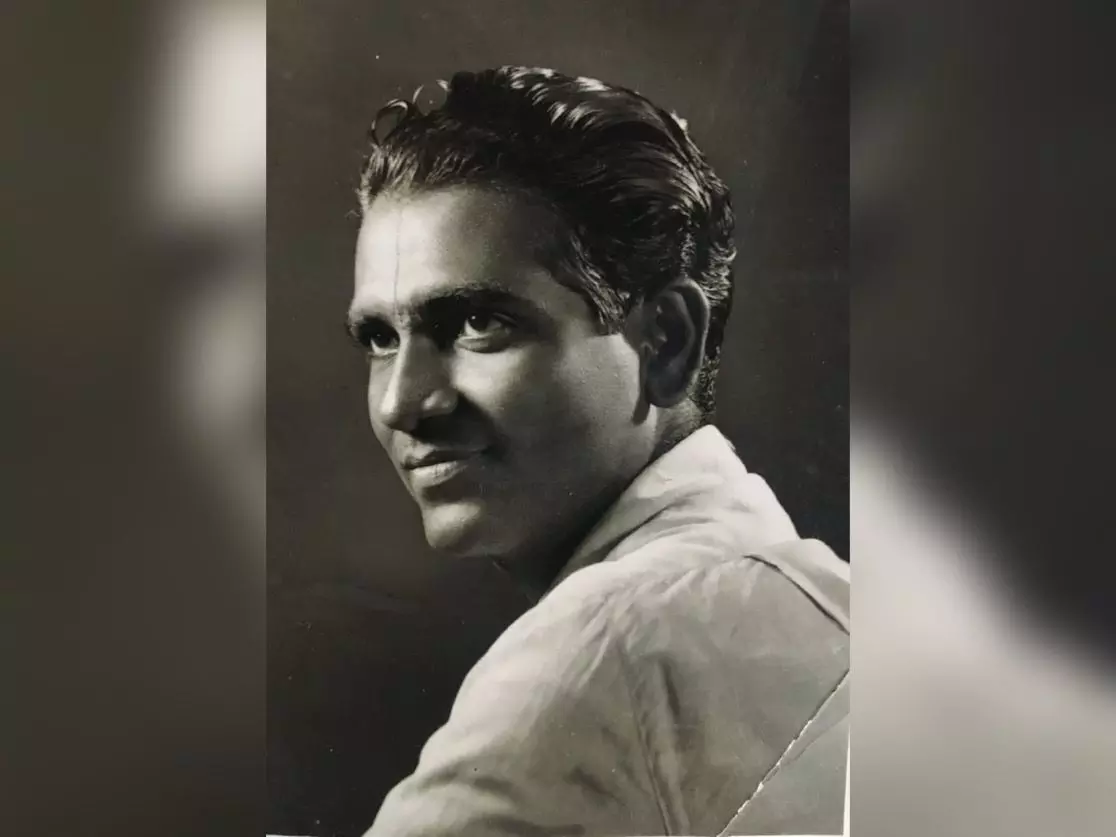Liberation of Hyderabad: Remembering legendary freedom fighter MS Acharya who took on powerful Razakars
Acharya remained in Warangal town, while his family members were shifted to Guntur for safety
By M Sridhar
Hyderabad: M.S. Acharya was an ordinary unemployed young man who worked as a newspaper distributor and agent to eke out a living in the pre-independence era. But it did not deter him from shaking the foundation of the Nizam regime. Bubbling with patriotic fervor and zeal for freedom, he fought for the liberation of the Hyderabad State from the early 1940s to 1948 to stop the brutal Razakar force, the private army called ‘volunteers of Majlis Ittehadul Muslimeen,’ who relentlessly attacked innocent people under the Nizam regime.
Several families had fled from Telangana villages to Andhra areas to protect their lives. Acharya remained in Warangal town, while his family members were shifted to Guntur for safety. His agitational activities included communicating the strategic secret information that was smuggled through the bundles of daily newspapers of Andhra Patrika, which in turn, were sent to Warangal Railway Station at the early hours of each day for circulation.
Acharya used to get surprised to see some agitation information that he did not know where it came from and where it needed to go, but he used to open the bundles and transmit such prohibited communications to the concerned leaders within Warangal.
The Nizam Government had prohibited the revolutionary poems of Atluri Ayodhya Ramakavi, the Saradhi weekly, published by Ramanuja Swami Talluri, the Weekly Hyderabad, edited by Dr. Marry Chenna Reddy, the Mulugolu weekly, edited by Bandi Buchaiah Choudhary. Acharya used to carry them, along with the bundles of Andhra Patrika. Then, it was the duty of Acharya to secretly distribute the newspapers among agitating workers, which he used to perform meticulously.
During such circulation of newspapers, he used to frequently confront mercenaries of Razakars or the Nizam’s Police. Acharya suffered injuries several times when those brutal armed forces assaulted him, suspecting anti-Nizam activity. Police used to prevent him from distributing the Telugu newspapers, considering them also as prohibited literature.
One day, a military person on a bike hit Acharya, who was cycling with the bundles of pamphlets and newspapers, stopped his bike, and started cruelly beating him. One person, Irukulla Srisailam, came to his rescue, embraced Acharya, and pleaded for mercy. Despite injuries, Acharya continued his activity of distributing pamphlets without fear.
On another occasion, one of his friends Shankar Rao was abducted by Razakars and inflicted third-degree torture at an unknown place. Acharya made all efforts to trace him, and after discovering that he was kept in custody at a Razakar camp, he lobbied through all his contacts to get him shifted to police custody from the private army. He thought it would be relatively easy to get Shankar Rao released from the police if his life was saved from the cruel hands of Razakars. It happened. Then, he turned every stone to take him out of the police lock-up. In 1946, he collected a huge amount of Rs 500 to pay the bribe demanded by the police. By the time, Shankar Rao was released, his physical condition was bad, and it took a long time for him to recover.
The Razakars came to know about Shankar Rao. His friends forced him to leave Warangal to Repalle in Guntur to meet his family. Till then, he had been safeguarding the empty colonies from any possible attack holding a lantern in one hand and a stick on the other.
Indian army entered Hyderabad on September 17, 1948, and took over important districts and towns of Hyderabad State.
Acharya returned to Warangal on September 22, 1948, to breathe the air of freedom with his friends and relatives. With the integration of Hyderabad into India, in which the areas of Telangana, and parts of today’s Maharashtra and Karnataka, which were part of India for centuries together, became free and celebrated freedom.
Thousands of freedom fighters like Acharya sacrificed their educations, careers, and families, risking their lives to lead the agitation and secret missions to liberate Telangana from Nizam’s rule.
September 17, 1948, remains the real Independence Day for Hyderabad, Warangal, and other Telangana districts. The day that the people of Hyderabad State were liberated.
Osman Ali Khan, the seventh Nizam, tried to remain independent, had links with Pakistan’s Karachi, bought weapons from them, had a radio connection with Pakistan, used British officers and legal experts, and spent huge money from his riches to keep the Indian army far off from invasion.
Nizam got the Standstill Agreement signed on November 29, 1947, which gave him ample time to negotiate with the Indian Government for the retention of his kingdom, properties, and rich palaces. Unfortunately, the then-Union Government went on to procrastinate action for political reasons.
Every person in Telangana owes a lot to these fighters. The new generation needs to understand that Telangana was not liberated on August 15, 1947, and not by non-violent means, but by shedding the blood of several people. Rich tributes to all those freedom fighters who fought for the liberation of Telangana.
(The author is a former Central Information Commissioner and son of M.S. Acharya)